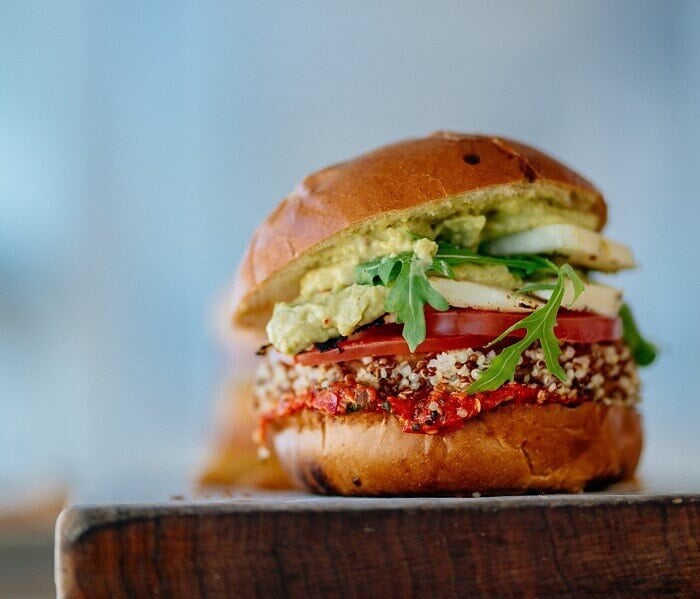4 mins read
How To Avoid Deficiencies On A Vegan Diet
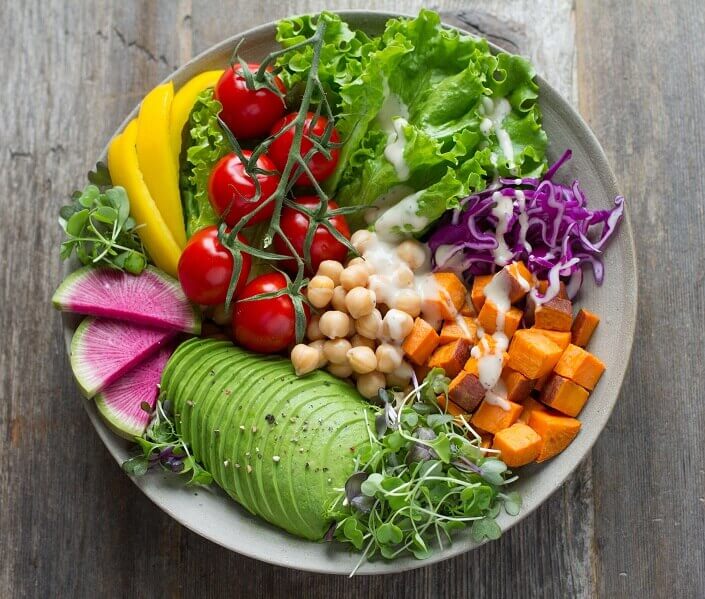
There are some health benefits to a vegan diet as part of a healthy lifestyle, for example, a plant-based diet can help reduce the risks of developing heart disease and type 2 diabetes as well as reducing high blood pressure.
However, as with any diet, it has to be balanced to ensure the body is getting the right level of vitamins and minerals, this can be particularly challenging if you are making the switch to a vegan diet from a carnivore diet.
Some of the common vitamin deficiencies of a vegan diet include:
- Vitamin B12
- Vitamin B9 (folate)
- Iron
- Vitamin D
So, how do you avoid vitamin deficiency when switching to a vegan diet?
View our Nutrition Tests and start your journey to better health today
How To Get Vitamin B12 & B9 On A Vegan Diet
Vitamin B12 is part of the B complex of vitamins and is an essential vitamin which means we can only get it through our diet – mainly meat and dairy sources. Vitamin B12 is essential for the formation of blood cells, neurological function as well as myelination and maintenance of the nervous system. Vegans are at an increased risk of developing vitamin B12 deficiency because of the lack of animal and dairy sources.
The best sources of vitamin B12 for people on a vegan diet include:
- Nutritional yeast
- Yeast spreads such as marmite
- Fortified soy and almond milks
- Fortified cereals
According to the NHS adults need around 1.5 micrograms of vitamin B12 per day, so if you are unable to obtain this from your diet, you may need to consider supplementation avoid B12 deficiency.
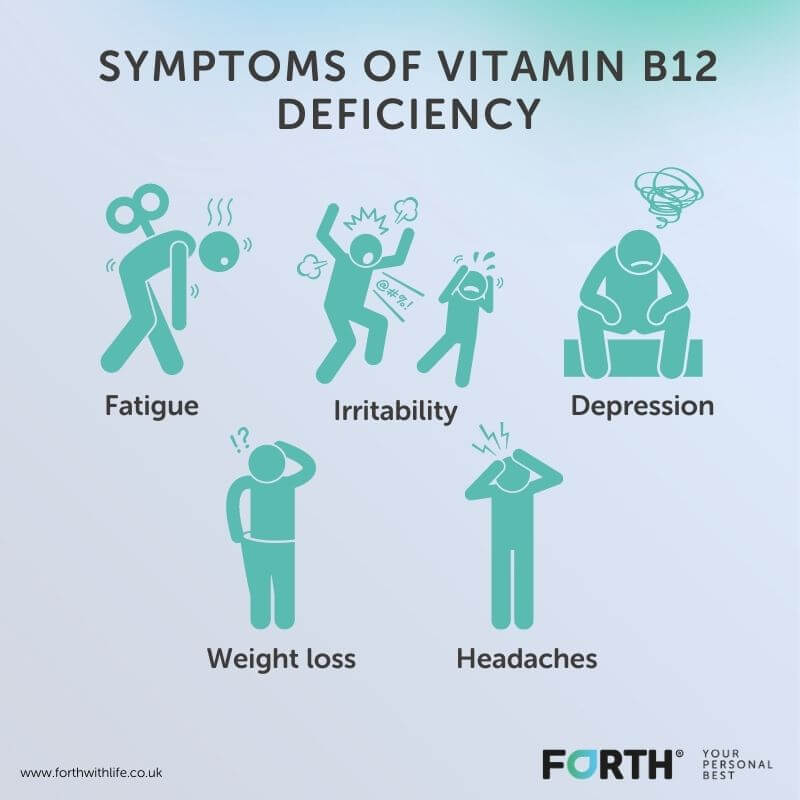
Vegans tend to have higher levels of folate in their blood, but this doesn’t mean you do not need to worry about B9 deficiency. To ensure you are getting enough B9 or folate consume foods such as:
- Lentils, beans, peas
- Dark, green leafy vegetables such as spinach or kale
- Asparagus, broccoli and avocados
- Fruits such as bananas, mangos and oranges.
- Nuts and seeds such as walnuts, chia seeds and linseed
How To Avoid Iron Deficiency On A Vegan Diet
Meat is high in iron and is a good source of protein as well as B vitamins, which is why vegans can be deficient in these vitamins. However, there are some good plant-based sources of iron. Foods that have a high iron content include:
- Legumes such as beans, lentils, chickpeas, peas and soy beans
- Dark, green leafy vegetables such as spinach and kale
- Nuts and seeds such as cashew nuts, pumpkin seeds, hemp seeds, ground linseeds, chia seeds
- Dried fruit such as apricots, figs and raisins
- Quinoa
It’s also important to ensure your body is able to absorb iron. Tea and coffee impair your body’s ability to absorb iron, whereas vitamin C can increase your body’s ability to absorb iron. However, be careful not to overconsume vitamin C as this will impact your body’s ability to absorb B12.
Why We All Need Vitamin D
Vitamin D deficiency is prevalent in people who eat meat as well as those on a vegan diet. Vitamin D plays a crucial role not just in our bone, teeth and muscle health, but also keeps our immune system strong.
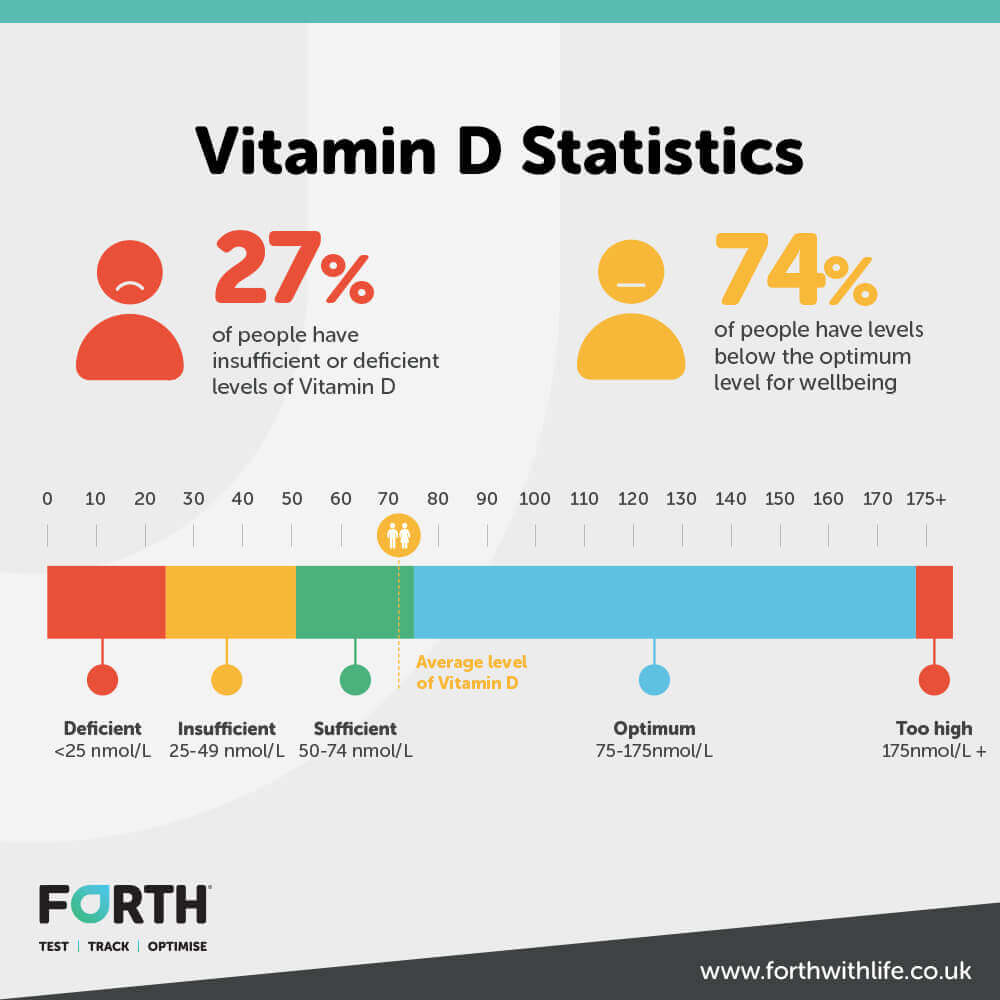
As most of the vitamin D the body gets is from the absorption of sunlight on the skin, many of us are deficient during the winter months. Therefore, it’s important to ensure you take a vitamin D supplement, particularly during winter months when the sun is weaker and our exposure to it is less. The NHS recommends that adults take 10 micrograms of vitamin D a day.
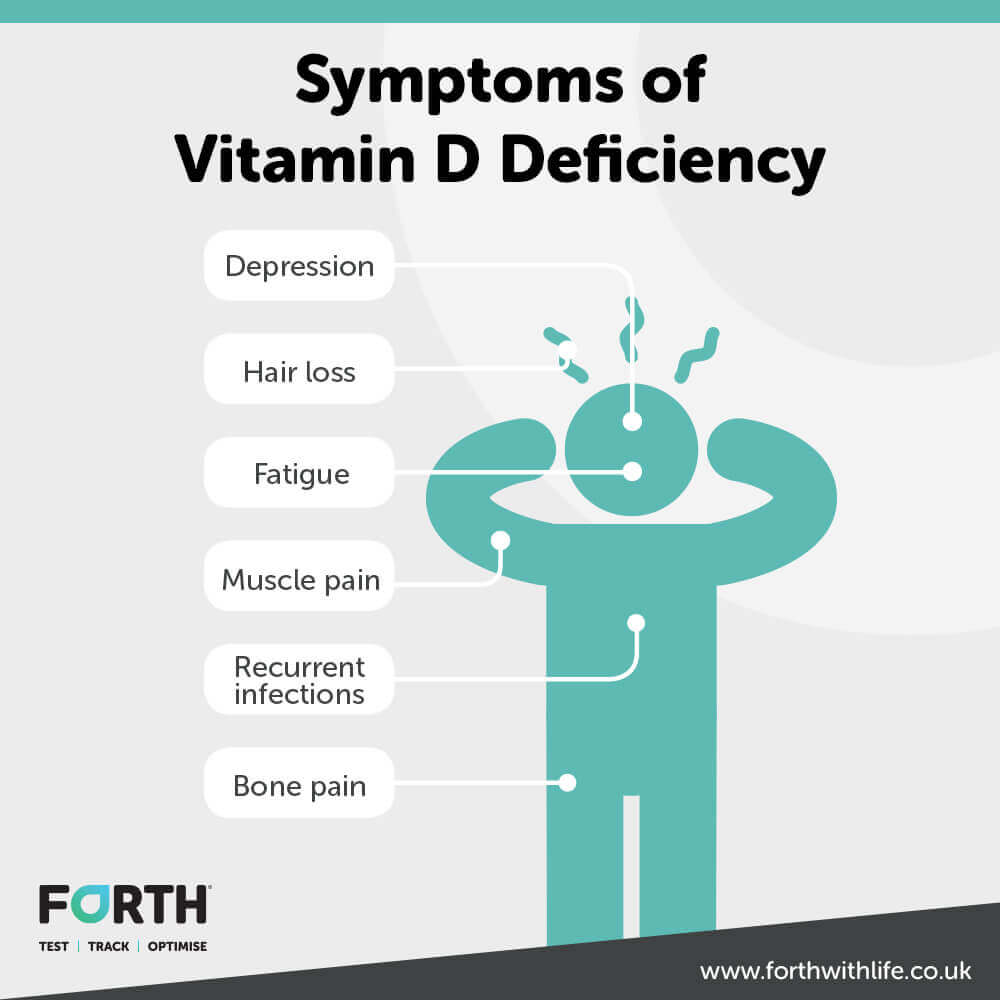
Read our blog on how to get enough vitamin D and calcium on a vegan diet.
How Do Vegans Avoid Nutritional Deficiencies?
It’s now easier for vegans to reduce the risk of nutritional deficiencies because the market is now more accommodating and versatile. There are many examples of fortified foods, dietary supplements, and ready-prepared vegan foods available to buy.
To avoid nutritional deficiencies on a vegan diet it is essential to:
- Eat 5 portions of fruits and vegetables every day
- Replace dairy products with alternatives such as soya drinks/milk
- Include beans, pulses and other plant-based proteins into the diet
- Include starchy carbohydrates as the base of your meals like potatoes, pasta and rice
- Keep yourself hydrated with 6-8 glasses of water/fluid per day
Vegan Diet Vitamin Deficiency Test
Our Nutricheck Test checks your levels of B12, B9, iron (ferritin) and vitamin D. By understanding whether you are deficient in any of these key nutrients will help you make the right changes to your diet.
- Health scores calculated
Close
Article references
-
Craig, W, J. (2009). Health Effects of Vegan Diets. Am J Clin Nutr: 89(suppl), pp 1627S-33S.
-
Phillips, S, M et al. (2016). Protein “Requirements” Beyond the RDA: Implications for Optimizing Health. Appl Physiol Nutr Metab: 41(5), pp 565-72.
-
Rogerson, D. (2017). Vegan Diets: Practical Advice for Athletes and Exercisers. Journal of the International Society of Sports Nutrition: 14.
-
Stabler, S, P. (2013). Vitamin B12 Deficiency. N Engl J Med: 368, pp 149-60.
This information has been medically reviewed by Dr Thom Phillips
Thom works in NHS general practice and has a decade of experience working in both male and female elite sport. He has a background in exercise physiology and has published research into fatigue biomarkers.

Dr Thom Phillips
Head of Clinical Services
Related articles
Like this article? Here are some more based on similar topics.



